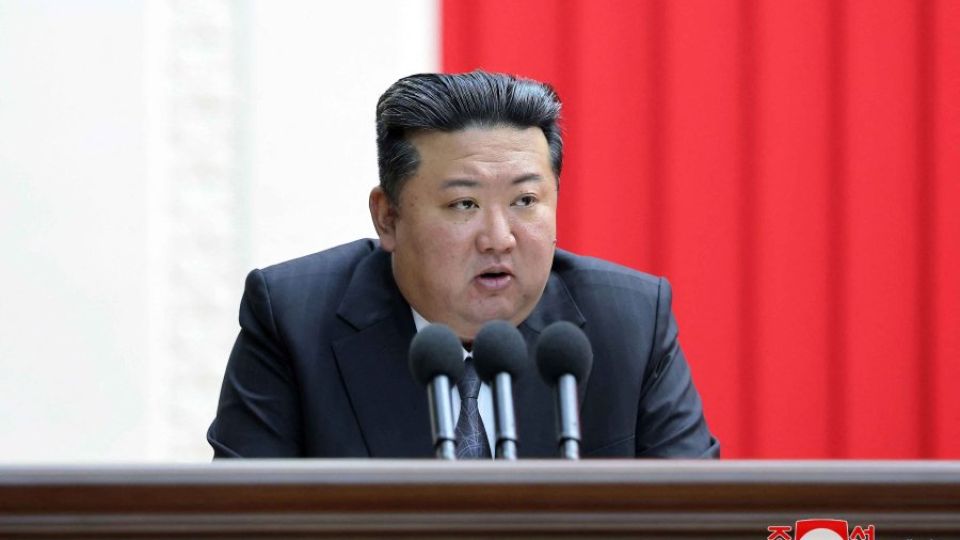February 4, 2025
SEOUL – North Korea on Monday delivered its first direct rebuke of the second Trump administration, condemning US Secretary of State Marco Rubio’s characterization of the regime as a “rogue state,” calling it a “hostile remark” and a “grave political provocation.”
An unnamed spokesperson for North Korea’s Foreign Ministry issued a press statement in response to Rubio’s Jan. 30 interview on “The Megyn Kelly Show,” where he briefly stated that the US must contend with “rogue states like Iran and North Korea.”
North Korea’s Foreign Ministry said it “deems the US State Secretary’s hostile remarks to thoughtlessly tarnish the image of a sovereign state as a grave political provocation” that blatantly violates international law’s core principles of sovereignty and non-interference and “strongly denounces and rejects it.”
Pyongyang asserted that Rubio’s “hostile words and deeds” — as the official responsible for US foreign policy — serve as further confirmation that “the US hostile policy toward the DPRK remains unchanged.”
“We will never tolerate any provocation of the US, which has been always hostile to the DPRK and will be hostile to it in the future, too, but will take tough counteraction corresponding to it as usual,” the English-language statement read, referring to North Korea by the acronym of its official name, the Democratic People’s Republic of Korea.
The statement harshly criticized Rubio and underscored Pyongyang’s distrust of the second Trump administration, saying his “coarse and nonsensical remarks” reflect the administration’s “incorrect view of the DPRK” and “will never help promote US interests as he wishes.”
“In view of Rubio’s political inclination and the US inveterate repugnancy towards the DPRK, his speech is nothing new, and it would be more surprising if he had said good word about the DPRK,” the statement read.
The Unification Ministry in Seoul noted Monday that North Korea’s swift response to the second Trump administration followed its leader Kim Jong-un’s declaration at the Dec. 23-27 party plenum announcing the launch of a “strategy for the toughest anti-US counteraction,” citing long-term national interests and security.
“Since then, North Korea has been reacting swiftly to the initial actions and statements of the new Trump administration,” the ministry’s spokesperson Koo Byoung-sam told a regular briefing, refraining from publicly assessing Pyongyang’s intentions behind the statement.
Observers in Seoul noted that North Korea is setting the tone and laying out preconditions for a potential summit between Trump and Kim, echoing the approach it took ahead of their three meetings during Trump’s first term from 2017 to 2021.
Lim Eul-chul, professor of North Korean studies at Kyungnam University in Seoul, pointed out that North Korea’s statement “carries both direct and indirect messages for President Trump.”
“Notably, it could serve as a warning that unless figures like Secretary of State Rubio, who oversees US foreign policy, halt their hostile rhetoric and actions toward North Korea, President Trump should not expect a summit with Chairman Kim Jong-un, despite his wishes,” Lim said.
Lim noted that the statement mirrors North Korea’s messaging during Trump’s first term, emphasizing that respect for sovereignty and non-interference in internal affairs are fundamental preconditions for fostering an atmosphere conducive to a US-North Korea summit.
“In the same vein, a suspension or adjustment of South Korea-US combined military exercises is also regarded as a critical condition for fostering the right atmosphere for resuming the summit,” Lim said. “North Korea views South Korea-US combined exercises as measures that disregard its sovereignty and security interests.”
Since Trump’s inauguration, North Korea has issued multiple statements, avoiding direct mentions of Trump or his administration. In a commentary on Sunday, North Korea’s state-run Korean Central News Agency condemned US arms exports to South Korea. In a separate statement on Jan. 26, the Foreign Ministry also denounced the Ssangmae Training air defense exercise held by South Korea and the US.
Yet, the core message from North Korea remains consistent and clear: justifying its military and nuclear buildup.
On Monday, the Disarmament and Peace Institute of North Korea’s Foreign Ministry issued another statement. Published in Rodong Sinmun, the country’s most widely circulated newspaper, it condemned the Trump administration’s plan to develop the so-called “American Iron Dome,” a comprehensive missile defense shield for the US homeland.
The Korean-language statement claimed that the plan seeks to “enable a preemptive nuclear strike against adversaries without fear of retaliatory attacks.”
“The increasingly severe global security environment … urgently demands that we continuously strengthen our Self-defensive national defense capabilities, with nuclear deterrence at the core.”
The significance of military and nuclear expansion was further underscored by Kim’s supervision of an underwater-to-surface strategic cruise missile test on Jan. 25 and his visit to a nuclear material production facility and a nuclear weapons institute, reported on Jan. 29.


